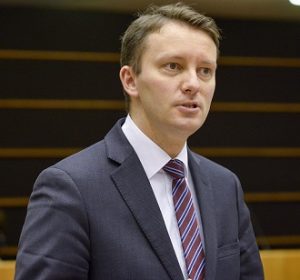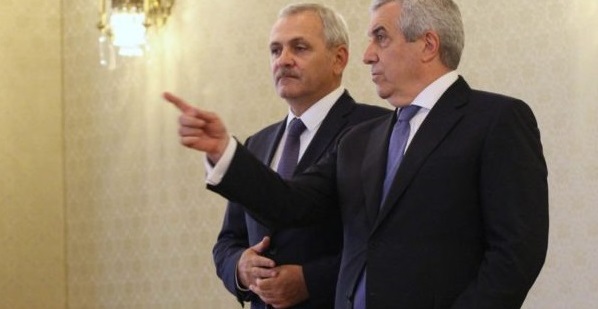The European Commission sent on Tuesday a briefing to the European Parliament on the 2007 – 2013 Multiannual Financial Framework.
According to the Commission’s data, the total European funds automatically decommitted from the previous financial framework amounts to EUR 4.4 billion.
Of this amount, Romania marks EUR 1.64 billion, which represents over one-third of the decommitted funds.
According to the official data sent to cursdeguvernare.ro by Romanian MEP Siegfried Muresan, Romania lost:
From the Cohesion Funds
- EUR 540.5 million, for transport projects
- EUR 163.7 million, environment projects
From the Regional Development Fund
- EUR 257.8 million, Regional Development projects
- EUR 17.5 million for Economic Competitiveness projects
- EUR 123.7 million, Transport projects
- EUR 264.8 million, Environment projects
From the European Social Fund
- EUR 276.1 million projects for Human Resources
How much other former communist countries have lost
The Commission data show that all member states have decommitted amounts, but it is worth making a comparison for relevance:
- Poland registers a total of EUR 353,409 lost.
- Bulgaria has decommitted amounts of EUR 240.7 million.
- Hungary lost EUR 27.9 million.
Romania lost EUR 1.64 billion
Decommitments represent the European funds allocated to member states for the 2007-2013 financial period and lost because they could not be spent by the deadline calculated based on the formula n+ 3, which means 31 December 2016.
Important point: The situation presented by the European Commission does not take into account the so-called phasing-in procedure. For the states to not be in the situation to reimburse the European funds spent on projects that could not be completed within the deadline, for various reasons, member states have requested, and the Commission has approved the „relocation” of these projects in the next exercise.
The only condition imposed: money for „old” projects is paid from the amounts allocated in the new financial period, so states lose money in fact.
In Romania’s case, Ponta government has requested the phasing of:
- 41 Environment projects, EU funding of EUR 785.1 million
- 37 Transport projects, EU funding of EUR 2.01 billion
- 6 Competitiveness projects, EU funding of EUR 210.5 million
Pitesti-Sibiu highway could be built entirely
 „Data published by the European Commission on the funds decommitted in the previous budget period show that Romania got the title of the worst-governed European country.
„Data published by the European Commission on the funds decommitted in the previous budget period show that Romania got the title of the worst-governed European country.
All governments that were in power for the 9 years when we could spend the money, that is 1 January 2007 – 31 December 2015, are more or less at fault, starting with Tariceanu government that knew since 2006 that it must prepare the launch of the authorities and management systems as well as the operational programs related to the absorption of the European funds, but was unacceptably late in starting them.
Although most of the operational programs were approved in 2007, the related management systems were only certified in 2009, which made impossible to send refund requests to the European Commission.
This resulted in an effective rate of 0% in the absorption of the structural funds for 2007 and 2008 when Calin Popescu-Tariceanu was prime minister.
The two years waisted contributed significantly to the loss of EUR 1.64 billion euros. With this money, Romania could build over 160 km of motorway or rehabilitate 150 km of railway, as it is known that Romania is today the country where trains run at the same speed as in the 19th century; with the same money, we could build 10 regional hospitals or rehabilitate 4,000 apartment blocks,” states Siegfried Muresan.
Siegfried Muresan notices though that Romanian governors’ big problem is that they do not learn lessons from the previous experience.
„We see today that the same mistakes that led to losing European funds in the previous budget exercise are made again in the management of the European funds related to the Multiannual Financial Framework 2014-2020.
Romanian Government completed the accreditation of the management authorities only in the second half of last year, three and a half years after the start of the current financial framework. Without these management authorities, we cannot attract European funds.
Besides, the ex-ante conditionalities provided for in the 2014-2020 Partnership Agreement between Romania and the European Commission are not fully met yet. The ex-ante conditionalities are measures to prepare legislation and institutions for a good use of the European funds. If we do not meet these conditionalities, the European Commission can suspend temporarily the related operational financing programs for conditionalities not fulfilled.
So, we risk losing again billions of euros from the European funds allocated to Romania unless the authorities show more interest and do more to absorb this money. In addition, it is very important that, by 2020, we can prove that we can manage the absorption of the European funds.
Only this way can we convince member states which are net contributors to the EU budget that Romania deserves the same high level of the European funds beyond 2020,” says MEP Siegfried Muresan.










